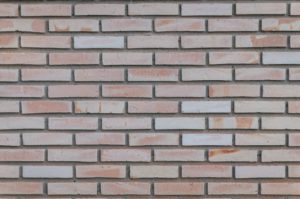In the realm of construction, where tradition meets innovation, a quiet revolution is taking place—one brick at a time. As concerns about climate change grow, many brick makers are paving the way for a sustainable future by producing carbon neutral bricks. In this exploration, we delve into the transformative journey of brickmakers who are pioneering the shift towards eco-friendly construction materials and the rise of carbon-neutral bricks.
The Environmental Impact of Traditional Brick Manufacturing
Traditional brick manufacturing has long been associated with significant environmental impacts. The process typically involves extracting raw materials, transportation, and energy-intensive firing in kilns. The carbon footprint of conventional bricks is substantial, contributing to greenhouse gas emissions and environmental degradation.
Raw Material Extraction:
Extracting clay, a primary component of traditional bricks often involves substantial land disruption. This process can lead to habitat destruction, soil erosion, and depletion of natural resources.
High-Energy Kiln Firing:
The firing of bricks in kilns is a critical step in the manufacturing process but is energy-intensive. Using fossil fuels for kiln firing releases large amounts of carbon dioxide into the atmosphere, contributing to climate change.
Transportation:
The transportation of raw materials to manufacturing sites and the subsequent transport of finished bricks to construction sites further add to the environmental impact, increasing carbon emissions.
Carbon Neutral Bricks: Pioneering a Sustainable Shift
In response to the environmental challenges posed by traditional brick manufacturing, innovative brickmakers are spearheading the development of carbon-neutral bricks. These eco-friendly alternatives aim to balance the carbon emissions produced during their lifecycle by implementing sustainable practices and materials.
Recycled and Low-Carbon Materials:
Carbon neutral bricks often incorporate recycled materials, reducing the demand for new resources. Some brick makers utilise low-carbon alternatives such as fly ash or slag, byproducts from other industries, as partial replacements for traditional clay.
Efficient Kiln Technologies:
Brickmakers are adopting energy-efficient technologies to minimise the environmental impact of kiln firing. High-tech kilns with reduced energy consumption and reliance on renewable energy sources contribute to lowering the carbon footprint of the manufacturing process.
Carbon Offset Initiatives:
Several brick makers are going beyond the production stage by investing in carbon offset initiatives. This involves supporting projects that absorb or reduce an equivalent amount of carbon dioxide emitted during the manufacturing and transportation of the bricks.
Leading the Charge: Brick Makers Embracing Carbon Neutrality
- Accoya Brick Company: A Commitment to Sustainability
The Accoya Brick Company is a beacon of sustainability in brick manufacturing. Their commitment to environmental responsibility is reflected in the use of Accoya wood, a modified timber product with significantly lower embodied carbon than traditional bricks. The company embraces a cradle-to-cradle approach, ensuring its bricks contribute to a circular and sustainable economy.
- CalStar Products: Reinventing the Brick with Innovative Materials
CalStar Products is at the forefront of redefining brick manufacturing with its innovative approach. Their bricks are made from recycled and low-carbon materials, significantly reducing the environmental impact. CalStar Products exemplifies how forward-thinking brick makers can revolutionise the industry by prioritising sustainability without compromising structural integrity.
- Wienerberger: Integrating Sustainability into Every Brick
Wienerberger, a global leader in brick manufacturing, has embraced sustainability as a core principle. Their commitment to carbon neutral bricks involves optimising the energy efficiency of their kilns and incorporating recycled materials. Wienerberger’s comprehensive sustainability strategy extends to water conservation, biodiversity initiatives, and the responsible sourcing of raw materials.
 Challenges and Opportunities in the Transition to Carbon-Neutral Bricks
Challenges and Opportunities in the Transition to Carbon-Neutral Bricks
While the shift toward carbon neutral bricks represents a significant leap forward, challenges persist in scaling up adoption and overcoming industry norms.
Market Perception and Education:
One challenge is changing market perceptions and educating consumers, builders, and architects about the benefits of carbon neutral bricks. Initiatives focused on raising awareness about the environmental impact of traditional bricks and showcasing the sustainability features of carbon neutral alternatives are crucial.
Economic Viability:
For widespread adoption, carbon neutral bricks need to be economically viable. Continued research and development and governmental incentives can drive down production costs, making these eco-friendly alternatives more accessible to the broader construction industry.
Collaboration Across the Supply Chain:
Integrating carbon neutral bricks into mainstream construction requires collaboration across the supply chain. From brick makers to architects, builders, and policymakers, a unified effort is essential to ensure a smooth transition and widespread acceptance of sustainable building materials.
The Future of Construction: Building with a Conscience
As the demand for sustainable building materials continues to rise, brick makers play a pivotal role in shaping the future of construction. The transition to carbon neutral bricks is a technological advancement and a paradigm shift toward building with a conscience.
Architectural Freedom:
Carbon neutral bricks offer architects and
Builders can create innovative and aesthetically pleasing structures without compromising on sustainability. The diverse range of materials and technologies available allows for incorporating eco-friendly bricks into various architectural styles.
Global Impact:
The adoption of carbon neutral bricks can have a substantial global impact by significantly reducing the construction industry’s carbon footprint. As brick makers embrace sustainability, they contribute to the broader movement toward greener, more environmentally responsible building practices.
Inspiring Industry Change:
Innovative brick makers inspire change within the construction industry by leading the charge toward carbon neutrality. Their commitment to sustainability sets a precedent for other manufacturers, encouraging them to explore and implement environmentally friendly practices in their respective sectors.
A Sustainable Foundation for Generations to Come
In the quest for a sustainable future, brick makers are not merely crafting building materials but laying the foundation for a world where construction aligns seamlessly with environmental stewardship. The pioneering efforts of those producing carbon neutral bricks exemplify a commitment to building responsibly, leaving a lasting legacy for future generations. As the industry continues to evolve, the journey toward eco-friendly construction is literally building brick by brick—a testament to the transformative power of innovation, sustainability, and a shared vision for a greener tomorrow.
